The digital world is shook up this Thursday in the United States.
[caption id="" align="aligncenter" width="484"]
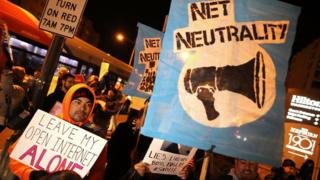 The decision generated protests in the United States.[/caption]
The decision generated protests in the United States.[/caption]The Federal Communications Commission (FCC, for its acronym in English) of that country announced the repeal in total of the rules of net neutrality approved by the government of Barack Obama in 2015, which prevented utility companies charge additional fees for faster access to certain content on the network.
Basically, they were in the obligation to treat the entire digital universe alike, which, in political terms, it meant that the authorities ensured that the companies that provide the service, not block, ralentizaran or discriminated against in any way any content or applications.
With the new law, everything will change.
The companies that provide the service will have now the freedom to experiment with new pricing, prioritize or block content, without being held accountable.
This could have great benefits for the supplier companies, according to the BBC Ryan Singel, expert in net neutrality, Centre for Studies of Internet and Society at Stanford University.
And this is because, he says, that traditionally the market phone the united States has been very competitive.
"We have only four large companies that provided internet and wireless broadband, which is terrible. The 51 % of americans only have one option to choose their Internet service, "he adds.
With this new model, it is estimated that these companies will be able to raise a lot more money on the part of the netizens and also to invest in improvements to their services.
[caption id="" align="aligncenter" width="704"]
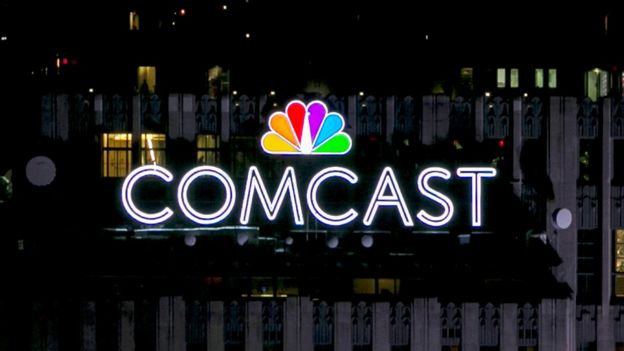 Large telecommunications companies like Comcast may be the big beneficiaries of the new rules.[/caption]
Large telecommunications companies like Comcast may be the big beneficiaries of the new rules.[/caption]"When you remove restrictions, these suppliers will be the main beneficiaries, will increase your profits, become more competitive and this will allow them to expand and improve the service or bring it to small communities", says the expert.
But if the companies will bring benefits and, in theory, will help small communities to have greater access to the network, what will be the consequences this could have for the vast majority of the users or for companies that use the Internet services in the United States?
And how can it affect this to the rest of the world?
[caption id="" align="aligncenter" width="750"]
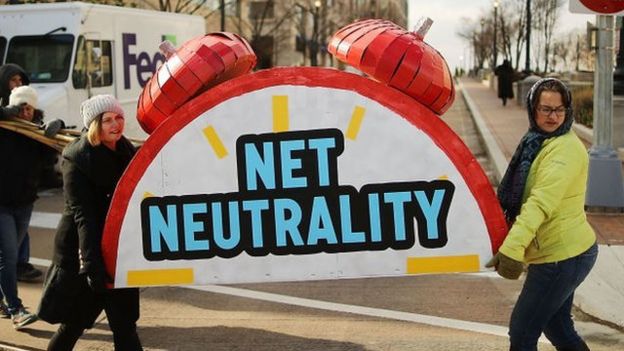 Until now, any company that wants to use the network could do it regardless of its power or size.[/caption]
Until now, any company that wants to use the network could do it regardless of its power or size.[/caption][anuncio_b30 id=1]
Rise in prices of connection
According to Singel, one of the first effects will be a rise in the prices of connection.
However, the specialist explains in an interview with the BBC that the main consequences is not going to make visible immediately, and will not have an effect, "directly" on the ordinary users, although they will be the greatest affected.
"The vote approved Thursday allows the large companies of the internet to seek out ways to charge more money to companies that are on-line. That is to say, will allow them to raise prices if they want to have a faster access to the internet".
Until now, any company that would like to use the network could do so independent of their power or importance.
[caption id="" align="aligncenter" width="699"]
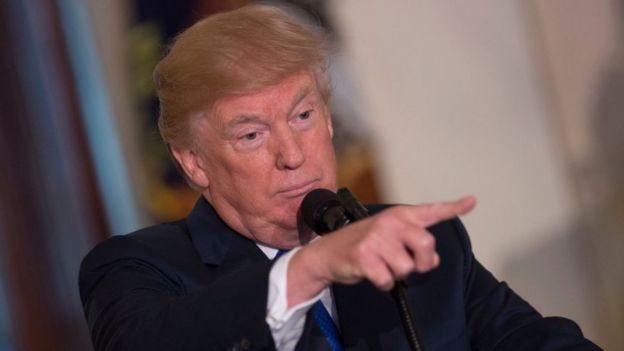 Since the arrival of Donald Trump to the White House, the Republicans wanted to reverse the rules on net neutrality.[/caption]
Since the arrival of Donald Trump to the White House, the Republicans wanted to reverse the rules on net neutrality.[/caption]I had the same right as a young programmer in a town of Massachusetts who wanted to open a blog or create an application on the benefits of beekeeping to a giant like Google.
But from now on, companies will be able to discriminate which users give you a larger bandwidth or who limit or cut services.
[anuncio_b30 id=1]
For users
"It is good to say that the first consequences will not fall directly on individuals. The fastest way to make money is behind the companies that are on the network, which in turn, will be reflected in the experience of internet users common, "says Singel.
The problem, he adds, is that the above will cause the services that we use online, as streaming (for watching videos or listening to music) become much more expensive too.
[caption id="" align="aligncenter" width="754"]
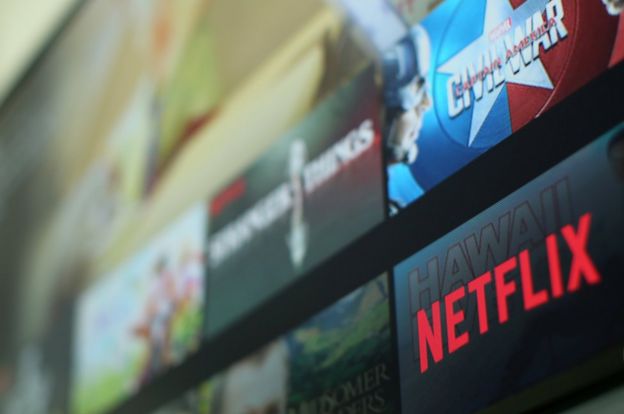 Netflix is one of the services that may be affected.[/caption]
Netflix is one of the services that may be affected.[/caption]"Netflix, for example, will become more expensive. As you will have to pay higher rates for use of the internet for better quality in order to offer their services, will need to charge more to its users to keep it. So we see that the Internet will be much more expensive in a service for which you pay", explained the specialist from the University of Stanford.
Other services, such as online sales, may also experience a rise in prices: when you have to pay more for internet service, will rise the prices on the products.
In the same way, as a few companies will benefit by about other, larger ones, like Amazon, would be benefited, while small-scale entrepreneurs will be diminished your chances of sale.
In addition, the specialist considers that, in general, you could create a "internet " differentiated" for those who can pay more and who pays less.
"As happens in some countries we may find that the Internet service is sold in "packages", as happens with the plans of telephone or television channels, grouped according to the provider," he says.
But you will not be there.
[anuncio_b30 id=1]
Less variety
Singel warns that there will also be less free services: since companies that now offer this type of utility will have to pay more, if you don't charge more will be unfeasible from the economic point of view.
This, he says, it will not affect too much to the big companies that can pay for this.
[caption id="" align="aligncenter" width="804"]
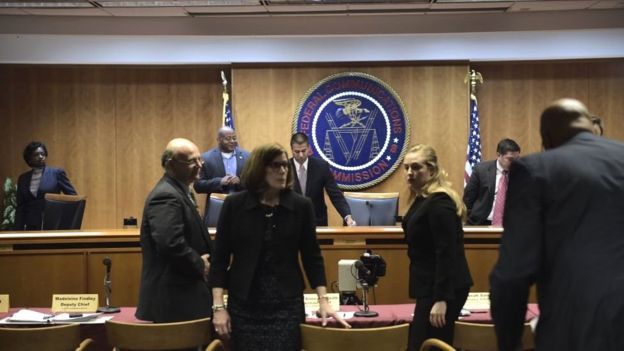 The audience in which the end of neutrality on the internet was determined.[/caption]
The audience in which the end of neutrality on the internet was determined.[/caption]However, it could mean the end of smaller companies or the failure of new projects in the network.
"Given that the prices for have a better the internet will rise and providers will be able to control his cravings will cause less new companies in the network, there will be less variety and will power to continue concentrating on the giants of the internet and there are less possibilities for innovation and for the plurality," he says.
"It will be an internet more controlled by the most powerful companies, there will be less possibilities for digital entrepreneurs to make their projects and be limited in general, freedom and variety of the network," he says.
[anuncio_b30 id=1]
Censorship
Another of the most controversial of this new law is that companies providing internet services may block or censor content for any reason.
"If Comcast and Verizon, for example, decide that we do not want to have sites that sell weapons, they can block those sites. In the previous rules, companies were required to keep on its servers any page regardless of the fact that they were in favor or against its contents. Now all that changes," says Singel.
During the previous act, any service and any application were legal within the laws of the United States, and no one could interfere with that without a court order or federal. Now this privilege belongs also to the service providers.
[caption id="" align="aligncenter" width="780"]
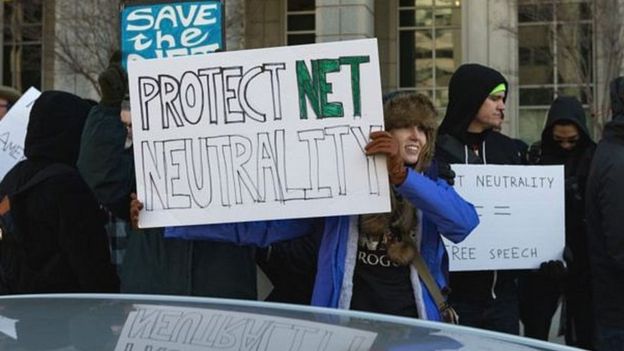 Activists for Internet rights protested the decision made in the United States.[/caption]
Activists for Internet rights protested the decision made in the United States.[/caption]"Any company or blogger, for example, that advocate for speeches controversial or opinions controversial could see censored or blocked your web, "he says .
But as the internet is a global phenomenon, the consequences will not be only for the United States.
[anuncio_b30 id=1]
Global consequences
According to Singel, the lack of variety of the internet and a network "most boring" will be one of the main consequences at the global level for the elimination of net neutrality in the United States.
Other losers will be the companies or even foreign users to hold information on servers in that country.
"If a foreign company wishes to use the services of U.S. internet to reach more users in that country, can be found that will not have the same capability of distributing its contents to a local business or a giant of the internet," he says.
The possibilities of entering the digital market american, says the expert, will become more difficult, bureaucratic and will lead processes that will be internet providers who will have the last word.
[caption id="" align="aligncenter" width="782"]
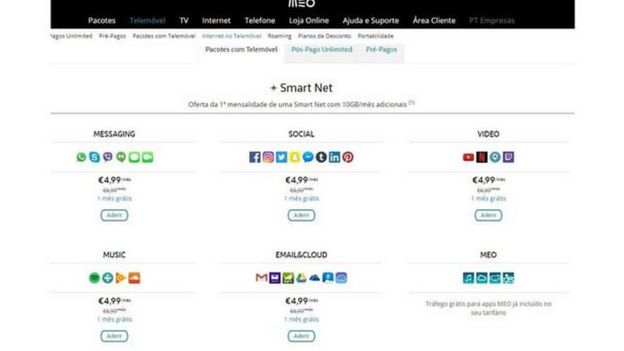 A congressman from the United States shared on Twitter how in Portugal Internet packages are sold as if they were cable television.[/caption]
A congressman from the United States shared on Twitter how in Portugal Internet packages are sold as if they were cable television.[/caption]A similar effect for companies, innovators, small businesses or applications that seek to host information on servers american: you might find that the speed to access them to slow down or increase.
From now on, the nature or size of the company will ensure that you have a better or worse internet service.
"There are companies that are outside of the United States who may be asked to pay more also if you want to reach customers of Verizon or Comcast, for example, if you want to get to users of those companies," he says.
[anuncio_b30 id=1]
Consequences of symbolic
On the other hand, the expert points out that the consequences are not only on the practical level.
"For a long time, the United States had been a leader on net neutrality, an international example. The law signed by Obama to regulate the internet in 2015 became a milestone at the international level," he says.
The new law, according to Singel, is "a very bad message to the rest of the world, because they show how the big phone companies can dictate to governments what they have to do."
[caption id="" align="aligncenter" width="796"]
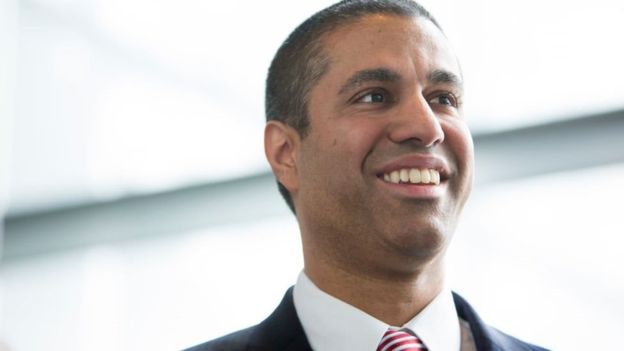 Ajit Pai, director of the Federal Communications Commission was a director at Verizon.[/caption]
Ajit Pai, director of the Federal Communications Commission was a director at Verizon.[/caption]But, according to Singel, you could also have political implications inside the american society.
"It is good to clarify that it is a measure taken despite widespread opposition from the public opinion, of the experts, and that it transcends the classical division of opinions between republicans and democrats," he says.
A survey published this week by the University of Maryland indicated that 83% of americans are opposed to the change of the law. Only among republicans, the level of opposition was 75%.
"This, of course, is negative also for the image of the government, because it is something that the people did not want to, but they did not listen and passed it anyway. That is not a good way of making people believe in democracy and democratic processes", he concludes.
SOURCE > BBC "Qué consecuencias tendrá el fin de la neutralidad de internet en Estados Unidos (y cómo afectará al resto del mundo)".
[anuncio_b30 id=5]


No comments:
Post a Comment